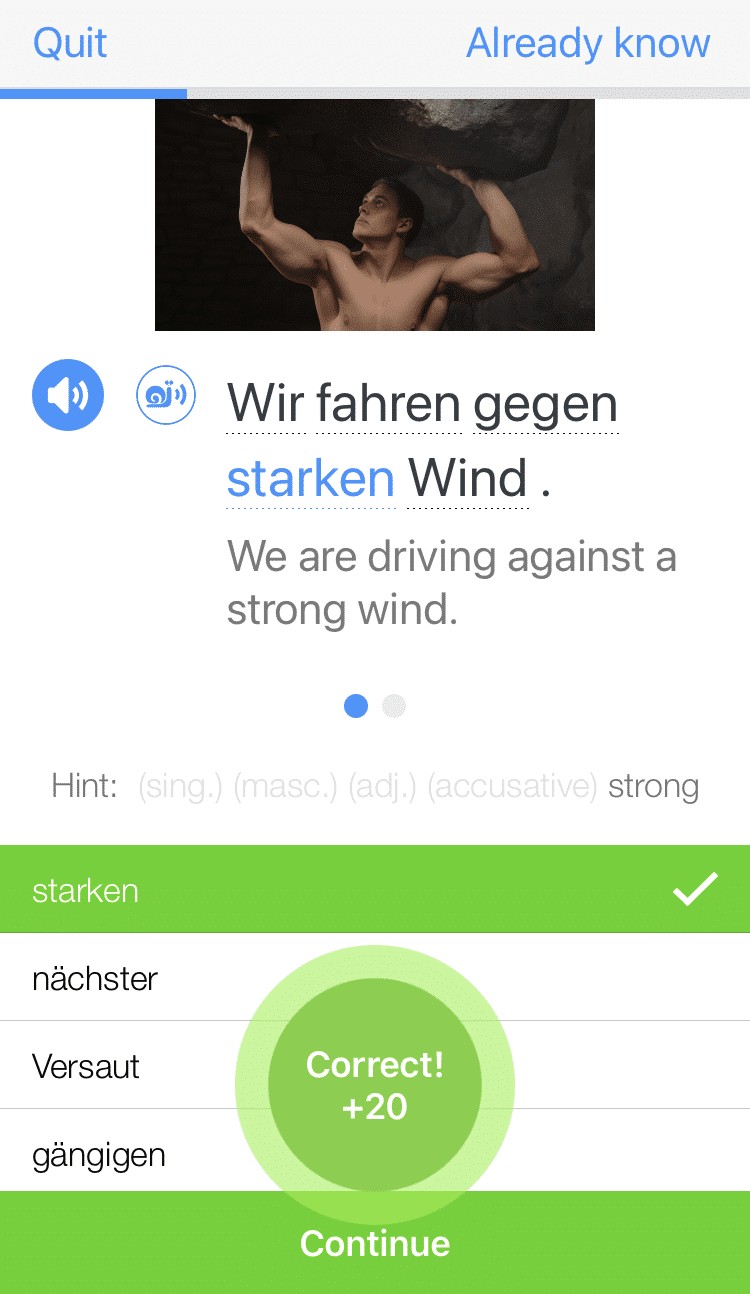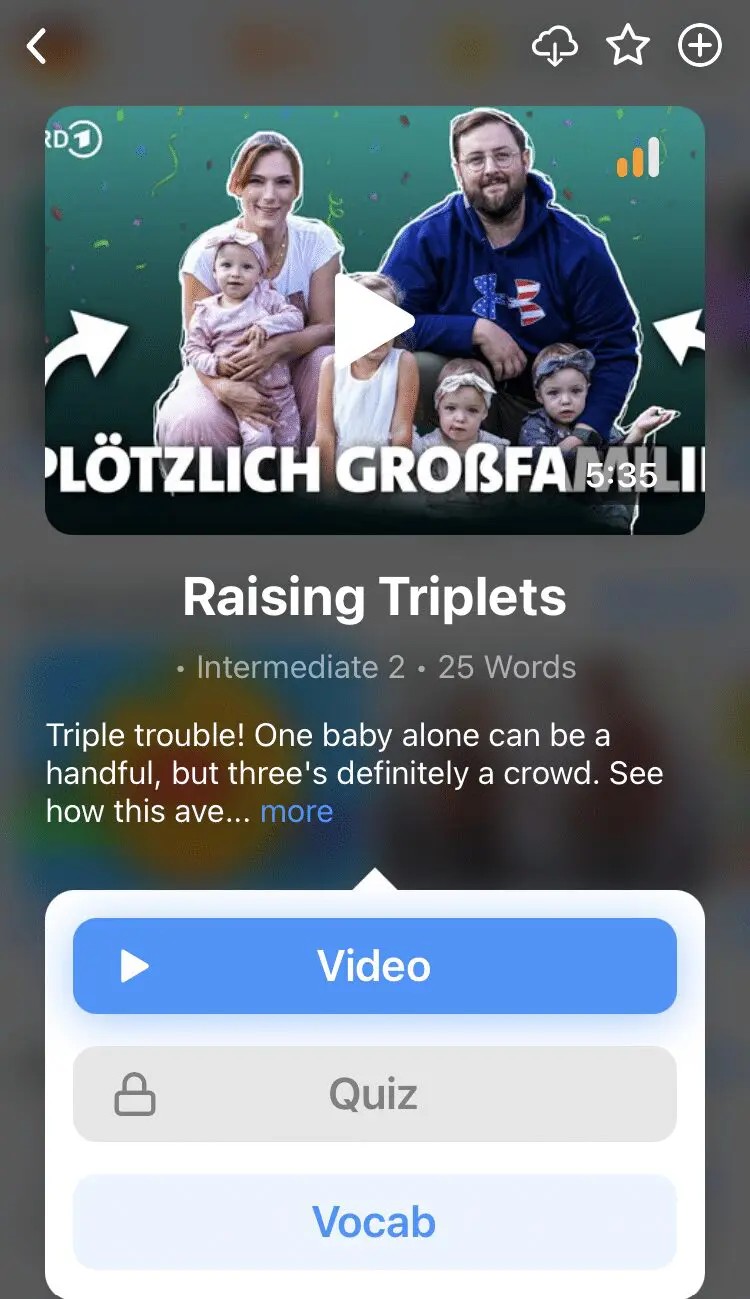Do German comparative and superlative forms seem challenging? This comprehensive guide on COMPARE.EDU.VN breaks down the rules and provides practical examples to help you master them, paving your way to fluency. Explore German grammar more efficiently! Discover effective strategies, detailed explanations, and practical tips for mastering German comparative and superlative forms.
1. What Are German Comparatives and Superlatives?
Comparatives and superlatives are essential tools in the German language for expressing differences and degrees. Understanding their usage allows for more nuanced and precise communication.
1.1. Defining Comparatives
Comparatives are used to compare two different nouns. They indicate that one noun has more of a particular quality than the other.
Example:
- English: “This car is faster than that one.”
- German: Dieses Auto ist schneller als jenes.
1.2. Defining Superlatives
Superlatives are used to indicate that a noun has the highest degree of a particular quality compared to all other nouns in a group.
Example:
- English: “She is the tallest student in the class.”
- German: Sie ist die größte Schülerin in der Klasse.
1.3. The Role of Adjectives and Adverbs
In both English and German, adjectives and adverbs are the building blocks of comparisons. Adjectives describe nouns, while adverbs describe actions.
- Adjective: He is slow.
- Adverb: He walks slowly.
German, like English, uses adjectives and adverbs extensively in comparative and superlative constructions. This parallel makes it easier for English speakers to grasp the German concepts.
2. Forming German Comparatives and Superlatives: The Basics
Understanding how to form comparatives and superlatives is the first step toward mastering their use. While there are general rules, exceptions exist.
2.1. The Standard Formula
The most common way to form comparatives in German is by adding -er to the end of the adjective or adverb. Superlatives are typically formed by adding -sten or -esten. In many cases, the word am precedes the superlative.
Examples:
| Positive | Comparative | Superlative |
|---|---|---|
| einfach (easy) | einfacher (easier) | am einfachsten (the easiest) |
| laut (loud) | lauter (louder) | am lautesten (the loudest) |




2.2. Exceptions to the Rules
German grammar is not without its exceptions. These are often found with monosyllabic adjectives, where an umlaut might be required.
Examples:
| Positive | Comparative | Superlative |
|---|---|---|
| groß (big) | größer (bigger) | am größten (the biggest) |
| alt (old) | älter (older) | am ältesten (the oldest) |
| jung (young) | jünger (younger) | am jüngsten (the youngest) |
2.3. Irregular Forms
Some adjectives and adverbs have irregular comparative and superlative forms that must be memorized.
Examples:
| Positive | Comparative | Superlative |
|---|---|---|
| viel (much) | mehr (more) | am meisten (the most) |
| gut (good) | besser (better) | am besten (the best) |
| gern (like/with pleasure) | lieber (love to/prefer to) | am liebsten (the favorite/with the most pleasure) |
| hoch (tall) | höher (taller) | am höchsten (the tallest) |
3. Using German Comparatives and Superlatives in Context
Knowing how to form comparatives and superlatives is only half the battle. Understanding how to use them correctly in sentences is equally important.
3.1. Gender and Case Considerations
German adjectives change form depending on the gender and case of the noun they modify. This is crucial to understand when using comparatives and superlatives.
3.1.1. Indefinite Articles (Strong Endings)
| Case | Masculine | Feminine | Neuter | Plural |
|---|---|---|---|---|
| Nominative | -r or -er | -e | -s or -es | -e |
| Accusative | -n or -en | -e | -s or -es | -e |
3.1.2. Definite Articles (Weak Endings)
| Case | Masculine | Feminine | Neuter | Plural |
|---|---|---|---|---|
| Nominative | -e | -e | -e | -en |
| Accusative | -en | -e | -e | -en |
3.2. Distinguishing Comparatives from Positive Adjectives
Sometimes, the ending of an adjective can be misleading. For example, in the phrase mein schneller Freund (my fast friend), the -er ending does not indicate a comparative form. It simply reflects the masculine gender of Freund.
The context is key to determining whether an adjective is comparative or simply descriptive.
3.3. Using Als in Comparative Sentences
In German, the word als is used to mean “than” in comparative sentences. This is essential for constructing grammatically correct comparisons.
Example:
- English: “I am faster than you.”
- German: Ich bin schneller als du.
3.4. Using Am or Articles in Superlative Sentences
When using superlatives, German employs either am or an article depending on the sentence structure.
- Am is used when the superlative is not between an article and a noun. Example: Ich bin am schnellsten. (I am the fastest.)
- An article is used when the superlative is between an article and a noun. Example: Meine Frau ist die Schönste. (My wife is the most beautiful.)
When using an article, the ending of the adjective must be modified to reflect the correct case and gender.
3.5. Nominative vs. Accusative Case
The case of nouns and pronouns can affect the form of comparatives and superlatives. While the nominative case is most common, the accusative case is also used.
Examples:
- Nominative: Ich bin größer als du. (I am taller than you.)
- Accusative: Mama mag mich besser als dich. (Mom likes me better than you.)
4. Common Mistakes and How to Avoid Them
Even with a solid understanding of the rules, it’s easy to make mistakes when using German comparatives and superlatives.
4.1. Incorrect Use of Umlauts
Forgetting to add an umlaut when needed is a common mistake. Always remember to check if a monosyllabic adjective requires an umlaut in its comparative or superlative form.
4.2. Confusing Als and Wie
Als is used for unequal comparisons, while wie is used for equal comparisons. Mixing these up can change the meaning of the sentence.
- Incorrect: Er ist so groß als ich.
- Correct: Er ist so groß wie ich. (He is as tall as me.)
4.3. Misusing Adjective Endings
Failing to adjust adjective endings based on gender, number, and case is a frequent error. Always double-check the endings to ensure they match the noun they modify.
4.4. Over-Generalizing Rules
Not all adjectives follow the standard rules for forming comparatives and superlatives. Be aware of irregular forms and memorize them.
5. Tips and Tricks for Mastering German Comparatives and Superlatives
Mastering German comparatives and superlatives requires practice and a strategic approach.
5.1. Flashcards and Mnemonics
Use flashcards to memorize irregular forms and tricky rules. Mnemonics can also help you remember which adjectives require umlauts.
5.2. Practice with Native Speakers
Engage in conversations with native German speakers to practice using comparatives and superlatives in real-time. This will help you get a feel for the nuances of the language.
5.3. Use Language Learning Apps
Apps like Duolingo, Memrise, and Babbel offer interactive lessons and exercises that focus on German grammar. These apps can help you practice and reinforce what you’ve learned.
5.4. Read German Literature
Reading German books, articles, and blog posts can expose you to a wide range of comparative and superlative constructions. Pay attention to how native speakers use these forms in their writing.
5.5. Watch German Media
Watching German movies, TV shows, and YouTube videos can help you hear how comparatives and superlatives are used in spoken German. Pay attention to the context and try to mimic the pronunciation and intonation of native speakers.
6. German Comparative And Superlative Practice: Examples and Exercises
To solidify your understanding, let’s look at some examples and exercises.
6.1. Comparative Examples
- Dieses Buch ist interessanter als das andere. (This book is more interesting than the other one.)
- Mein Auto ist schneller als dein Fahrrad. (My car is faster than your bicycle.)
- Sie singt besser als ich. (She sings better than me.)
6.2. Superlative Examples
- Er ist der klügste Schüler in der Klasse. (He is the smartest student in the class.)
- Das ist der beste Film, den ich je gesehen habe. (That is the best movie I have ever seen.)
- Sie ist am schönsten, wenn sie lächelt. (She is most beautiful when she smiles.)
6.3. Exercise 1: Fill in the Blanks (Comparative)
Fill in the blanks with the correct comparative form of the adjective in parentheses.
- Dieser Kaffee ist __ (heiß) als der Tee.
- Mein Haus ist __ (groß) als dein Apartment.
- Sie ist __ (jung) als ihr Bruder.
Answers:
- heißer
- größer
- jünger
6.4. Exercise 2: Fill in the Blanks (Superlative)
Fill in the blanks with the correct superlative form of the adjective in parentheses.
- Das ist das __ (teuer) Auto im Laden.
- Er ist der __ (schnell) Läufer im Team.
- Sie ist am __ (glücklich) mit ihrer Familie.
Answers:
- teuerste
- schnellste
- glücklichsten
6.5. Exercise 3: Translate the Sentences
Translate the following sentences into German, using the correct comparative or superlative forms.
- This cake is better than the one I made yesterday.
- She is the tallest girl in her class.
- My job is more interesting than yours.
Answers:
- Dieser Kuchen ist besser als der, den ich gestern gemacht habe.
- Sie ist das größte Mädchen in ihrer Klasse.
- Mein Job ist interessanter als deiner.
7. Additional Resources for Continued Learning
To further enhance your understanding and skills in German comparatives and superlatives, explore these resources:
7.1. Online Quizzes and Exercises
- Lingolia: Offers a variety of online quizzes focused on comparative and superlative forms.
- University of Michigan: Provides short online practice exercises to test your knowledge and skills.
7.2. Mobile Flashcard Apps
- Brainscape: Use this app to drill yourself on irregular forms and other essential rules.
7.3. Language Exchange Programs
- Find a language exchange partner to practice using comparatives and superlatives in real conversations.
7.4. German Language Schools
- Enroll in a German language school in your area for structured lessons and personalized feedback.
8. German Comparative and Superlative Practice: Real-Life Applications
Understanding and using comparatives and superlatives effectively can significantly enhance your communication skills in real-life situations. Here are some practical applications where this knowledge proves invaluable:
8.1. Travel and Tourism
When traveling in German-speaking countries, you’ll often need to make comparisons and express preferences. For example:
- Asking for recommendations: “Welches Hotel ist am besten in der Stadt?” (Which hotel is the best in the city?)
- Comparing prices: “Dieses Restaurant ist teurer als das andere.” (This restaurant is more expensive than the other one.)
- Expressing preferences: “Ich mag den Strand lieber als die Berge.” (I prefer the beach more than the mountains.)
8.2. Professional Settings
In the workplace, you might need to compare different strategies, products, or colleagues.
- Evaluating performance: “Seine Leistung ist besser als letzte Quartal.” (His performance is better than last quarter.)
- Comparing products: “Dieses Produkt ist effizienter als das alte Modell.” (This product is more efficient than the old model.)
- Discussing qualifications: “Sie ist die qualifizierteste Kandidatin für die Stelle.” (She is the most qualified candidate for the position.)
8.3. Education and Learning
Comparatives and superlatives are crucial for academic discussions and evaluations.
- Comparing theories: “Diese Theorie ist komplexer als die andere.” (This theory is more complex than the other one.)
- Evaluating research: “Diese Studie ist umfassender als die vorherige.” (This study is more comprehensive than the previous one.)
- Expressing opinions on literature or art: “Dieses Buch ist interessanter als der Film.” (This book is more interesting than the film.)
8.4. Daily Conversations
Even in everyday conversations, comparatives and superlatives help you express your thoughts and opinions more precisely.
- Discussing food: “Dieses Gericht ist schärfer als erwartet.” (This dish is spicier than expected.)
- Talking about weather: “Heute ist es wärmer als gestern.” (Today it is warmer than yesterday.)
- Sharing opinions on movies or music: “Dieses Lied ist besser als sein letztes.” (This song is better than his last one.)
By practicing these real-life applications, you’ll not only improve your German language skills but also gain confidence in using comparatives and superlatives effectively. Remember to listen to native speakers, read German texts, and engage in conversations to refine your understanding and usage.
9. Conclusion: Embrace the Challenge
Learning German comparatives and superlatives can be challenging, but with the right approach and resources, it is definitely achievable. By understanding the rules, practicing regularly, and seeking out opportunities to use these forms in real-life conversations, you can master this essential aspect of German grammar.
Remember, COMPARE.EDU.VN is here to support you every step of the way. For more detailed comparisons and helpful guides, visit our website at COMPARE.EDU.VN. Whether you’re comparing language learning methods, educational resources, or travel options, we provide the information you need to make informed decisions.
9.1. Ready to Take Your German to the Next Level?
Don’t let grammar hold you back. Explore our resources, practice diligently, and embrace the journey of learning German. With time and effort, you’ll find that using comparatives and superlatives becomes second nature.
Need more help with your comparisons? Contact us at:
- Address: 333 Comparison Plaza, Choice City, CA 90210, United States
- WhatsApp: +1 (626) 555-9090
- Website: COMPARE.EDU.VN
10. Frequently Asked Questions (FAQ)
10.1. What is the difference between als and wie in German?
Als is used for unequal comparisons (e.g., Ich bin größer als du – I am taller than you), while wie is used for equal comparisons (e.g., Ich bin so groß wie du – I am as tall as you).
10.2. How do I know when to use an umlaut in comparative and superlative forms?
Umlauts are often required in monosyllabic adjectives. Common examples include alt (old) becoming älter (older) and groß (big) becoming größer (bigger).
10.3. What are some common irregular comparative and superlative forms?
Some common irregular forms include gut (good) becoming besser (better) and am besten (the best), and viel (much) becoming mehr (more) and am meisten (the most).
10.4. How do I adjust adjective endings based on gender and case?
Adjective endings change based on the gender, number, and case of the noun they modify. Refer to charts on definite and indefinite articles to determine the correct endings.
10.5. Can I use “mehr” and “meist” to form comparatives and superlatives?
No, in German, you cannot simply add mehr or meist to form comparatives and superlatives. You must use the correct -er and -sten endings or the irregular forms.
10.6. How can I practice using comparatives and superlatives effectively?
Practice by reading German texts, watching German media, and engaging in conversations with native speakers. Use language learning apps and online quizzes to reinforce your knowledge.
10.7. What are the most common mistakes to avoid when using comparatives and superlatives?
Common mistakes include incorrect use of umlauts, confusing als and wie, misusing adjective endings, and over-generalizing rules.
10.8. How does the case (nominative, accusative) affect comparatives and superlatives?
The case affects the adjective endings. For example, in the accusative case, ich (I) becomes mich (me), and the adjective endings must reflect this change.
10.9. Are there any shortcuts for memorizing irregular forms?
Use flashcards, mnemonics, and frequent practice to memorize irregular forms. Repetition and context are key to mastering these exceptions.
10.10. Where can I find more resources for learning German grammar?
Visit compare.edu.vn for comprehensive guides, comparisons, and resources to support your German language learning journey.